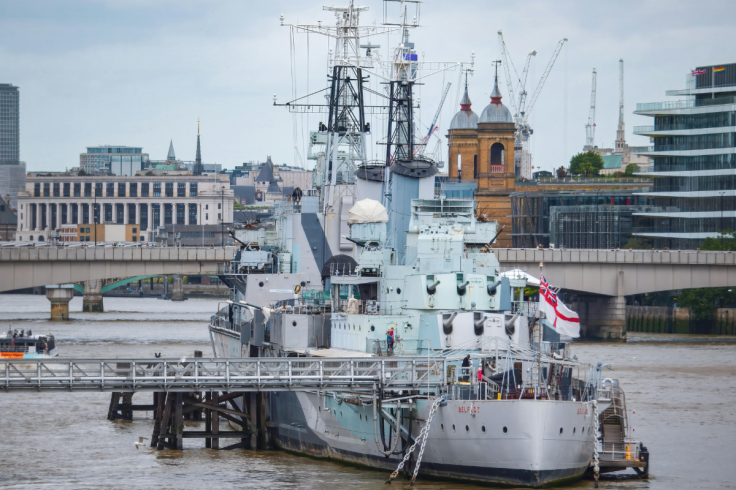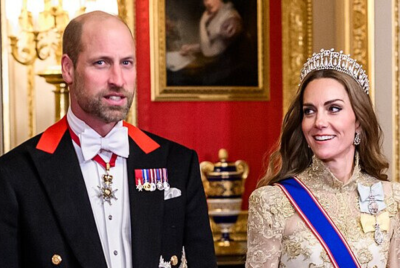Why Did the Royal Navy Intercept the Russian Warship? Cause, What Happened and Historical Significance
Minister Al Carns stated, 'The Royal Navy stands ready to respond to any Russian Naval activity...'

Amid UK economy 2025 turbulence, GDP growth forecasts hover at 1.3 per cent per IMF projections, battling inflation rate spikes to 3.2 per cent from OBR estimates, while unemployment edges to 4.8 per cent according to ONS data.
These pressures amplify the urgency of national security moves, as defence spending strains budgets already hit by global trade tensions. The Royal Navy's bold interception of a Russian vessel underscores how geopolitical risks intersect with economic fragility, spotlighting NATO solidarity, fiscal resilience, and inflation impacts in a year of subdued growth.
NATO Vigilance Amid Economic Strain
The Royal Navy intercepted the Russian destroyer Vice Admiral Kulakov as part of a NATO-led operation to monitor adversarial naval activity in UK waters, driven by heightened tensions in northern Europe.
Activated by NATO Allied Maritime Command on 20 October 2025, this marked the first direct tasking of a British warship for such surveillance, reflecting broader efforts to safeguard sea lanes vital for 60 per cent of UK trade worth £1.2 trillion ($1.84 trillion) annually. With UK GDP growth projected at a modest 1.3 per cent for 2025 , economic forecasters warn that disruptions could shave 0.3 per cent off output due to supply chain hits, per IMF analysis.
Inflation rate at 3.2 per cent exacerbates costs, with energy import vulnerabilities—linked to secure Atlantic routes—pushing household bills up 10 per cent, or £150 ($230) yearly per OBR figures. Unemployment at 4.8 per cent in June to August 2025 signals labour market softening, where defence jobs in Portsmouth and Plymouth sustain 5,000 roles amid 4.7 per cent overall rate rises.
Minister Al Carns stated, 'The Royal Navy stands ready to respond to any Russian Naval activity... underpinning our unwavering solidarity with NATO to counter Russian activity.' This cause ties defence to economic stability, as unchecked incursions risk inflating import prices and denting consumer confidence in a year where wage growth lags at 3.75 per cent.
A Coordinated Maritime Challenge
On 20 October 2025, HMS Duncan, a Type 45 destroyer from Portsmouth, intercepted the Vice Admiral Kulakov in the North Sea, launching a 48-hour shadowing operation westward through the English Channel to Ushant off France. Supported by a Wildcat helicopter from 815 Naval Air Squadron, Duncan used advanced radar to track the vessel, coordinating with Dutch NH90 helicopters and French Navy units for seamless NATO interoperability.
Concurrently, HMS Somerset, a Type 23 frigate from Plymouth, patrolled North Atlantic lanes since 1 August 2025 under Operation Relentless, protecting the UK's nuclear deterrent amid economic strains. Commander Dan Lee noted, 'Tracking and escorting the Vice Admiral Kulakov through UK waters was a clear example of NATO's interoperability in action... showcasing our shared resolve to uphold international maritime norms.'
The event unfolded without incident, enforcing maritime rules while allied forces maintained visual and electronic surveillance. In the UK economy 2025 landscape, such operations cost £10 million ($15.34 million) in fuel and maintenance, per MoD estimates, amid GDP growth forecasts of 1.3 per cent that barely outpace inflation rate at 3.2 per cent . Unemployment ticking to 4.8 per cent underscores workforce reliance on naval bases, where 2,000 personnel mobilised, sustaining local spending.
This multinational response deterred escalation, preserving trade routes that underpin 25 per cent of GDP from exports. As global tariffs loom, per IMF warnings of 0.3 per cent GDP drag, the operation exemplified rapid deployment, with Somerset's port calls to Torshavn on 10 October and Reykjavik on 15 October fostering alliances.
Defence's Role in Economic Fortitude
This interception holds historical weight as the first NATO-direct-commanded Royal Navy tracking of a Russian warship in UK waters since Cold War escalations, echoing 1982 Falklands tensions but amplified by 2025's economic frailties.
Defence allocation of £60.2 billion ($80.30 billion) in 2025—2.5 per cent GDP—underpins 300,000 jobs, buffering unemployment rises and fostering tech innovations boosting productivity 1.4 per cent long-term. Historically, such stands deter aggression, as in 2018 Black Sea incidents, preventing economic sabotage like cyber disruptions costing £1 billion ($1.53 billion) yearly.
Carns emphasised, 'They conduct constant monitoring operations to safeguard Britain and our territorial waters.' This bolsters fiscal credibility, attracting £200 billion ($307 million) in foreign investment reliant on stability.
© Copyright IBTimes 2025. All rights reserved.



















